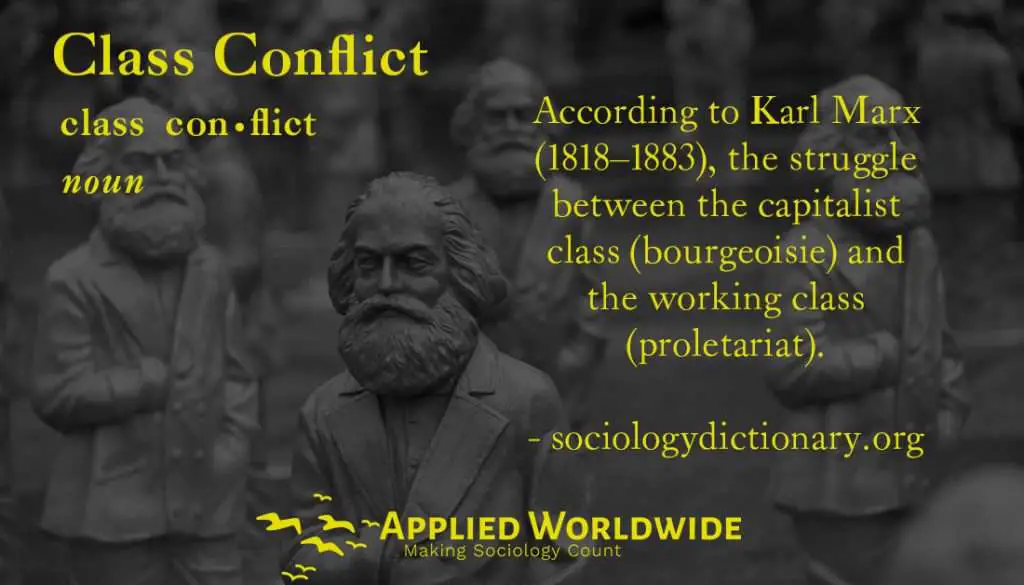What are sociological theories?
In simple-straight forward words, sociological theories are postulations that seek to peruse, explore and explain objects of social reality from the lens and approaches of sociological perspectives. This is, delineating from connections between individual concepts in order to properly present and dispense sociological knowledge. It can also be seen as a set of ideas that provides an explanation for human society. Theories are selective in terms of their priorities and perspectives and the data they define as significant. As a result, they provide a particular and partial view of reality (Trueman, 2015).
Therefore, theories in sociology enables us to strategize diverse means and opportunities to view our social world in ways clearer, understandable and viable to practical actions. Mooney, Knox, and Schacht (2017) asserted that a perspective is simply a way of looking at the world and a theory can be said to be a set of interrelated propositions or principles designated to answer question or explain a particular phenomenon; that is; theory presents us with a perspective. Sociological theories impeccably help us understand, predict, analyse and explore the social world we live in.
Sociology is an examination of human beings in social contexts. It entails observing how people in specific communities interact, and surveying and conducting experiments to yield new data on which to build sociological knowledge. Interconnectivity or interdependence is the main characteristic of a society. Sociological theories are frameworks explaining how certain aspects or elements of society are interconnected to the larger processes or environment. Application of theories helps determine the interdependent aspects of the co-existence of individuals or groups. Theories in the area of sociology will help people understand how society works and how they can be a useful part in it (November 2018, Importance of Sociological Theory).
Sociological Theories and the Systemization of Knowledge
George Ritzer (2003), the American sociologist, professor, and author who studies globalization, metatheory, patterns of consumption, and modern and postmodern social theory, noted that sociological theory is central to set of interrelated ideas that allow for the systematization of knowledge of the social world.
This knowledge, he noted, can then be used to explain the social world and make predictions about the future of the world. In the same vein, human behavior is complicated, especially when it comes to how we interact with each other and the world around us. Therefore, sociological theories are organized ideas that help us make sense of human behavior. Sociological theories can be small, explaining single actions in the scope of a social situation. Theories can also attempt to explain the vast phenomena of human behavior or give us a new way of looking at behaviors we have seen all our lives (Renner, 2018).
Big Three Sociological Theories
Sociological theories, although numerous, include three primary theoretical perspectives, which are by no means mutually exclusive. They are: the functionalist theory, the conflict theory, and the symbolic interactionist theory.
The Functionalist Theory
The functionalist theory is the principle of functionalism which is largely based on a system of interconnected parts that work together in order to maintain a position of balance for the whole.
It views society as a complex system whose parts work together to encourage solidarity and stability. This approach looks at society through a macro-level orientation, which is a broad focus on the social structures that shape society as a whole and looks at both social structure and social functions. Functionalism addresses society as a whole in terms of the function of its constituent elements, namely: norms, customs, traditions, and institutions. A common analogy, popularized by Herbert Spencer (2007), presents these parts of society as “organs” that work toward the proper functioning of the “body” as a whole.
The Conflict Theory
According to Wikipedia, conflict theory seek to emphasize a materialist interpretation of history, dialectical method of analysis, a critical stance toward existing social arrangements, and political program of revolution or, at least, reform. Conflict theories draw attention to power differentials, such as class conflict, and generally contrast historically dominant ideologies. It is therefore a macro-level analysis of society.

It further deepened the fact that Karl Marx is regarded as the father of social conflict theory, which is a component of the four major paradigms of sociology. Certain conflict theories set out to highlight the ideological aspects inherent in traditional thought. While many of these perspectives hold parallels, conflict theory does not refer to a unified school of thought, and should not be confused with, for instance, peace and conflict studies, or any other specific theory of social conflict.
In essence, the conflict theory offers various aspects of our society by deeply looking at which groups have power and benefit from a particular social arrangements.
The Symbolic Interactionist Theory
Symbolic interactionist theory stems from a sociological perspective which was developed around the middle of the twentieth century and that continues to be influential in some areas of the discipline.
Randall Collins, the American sociologist who has been influential in both his teaching and writing, explained that symbolic interactionism is about the way the social world is created through interaction between individuals and their environment.
It is simply known as the sociological theory that develops from practical considerations and alludes to people’s particular utilization of dialect to make images and normal implications, for deduction and correspondence with others. In other words, it is a frame of reference to better understand how individuals interact with one another to create symbolic worlds, and in return, how these worlds shape individual behaviors (Hall, 2007).
Concluding Thoughts on Sociological Theories
In conclusion, the importance of theory in the area of sociology cannot be overemphasized. Theories such as the functionalist theory, the conflict theory, and the symbolic interactionist theory, and so on, were developed to explain social phenomena.







